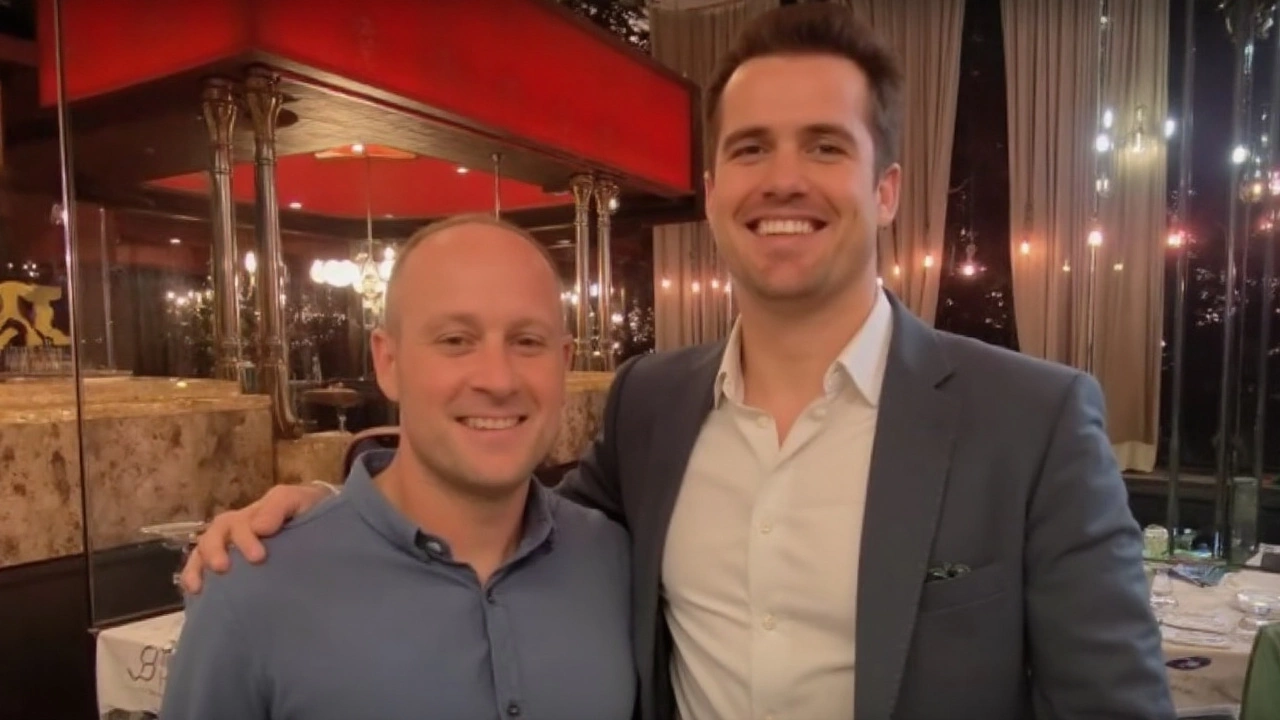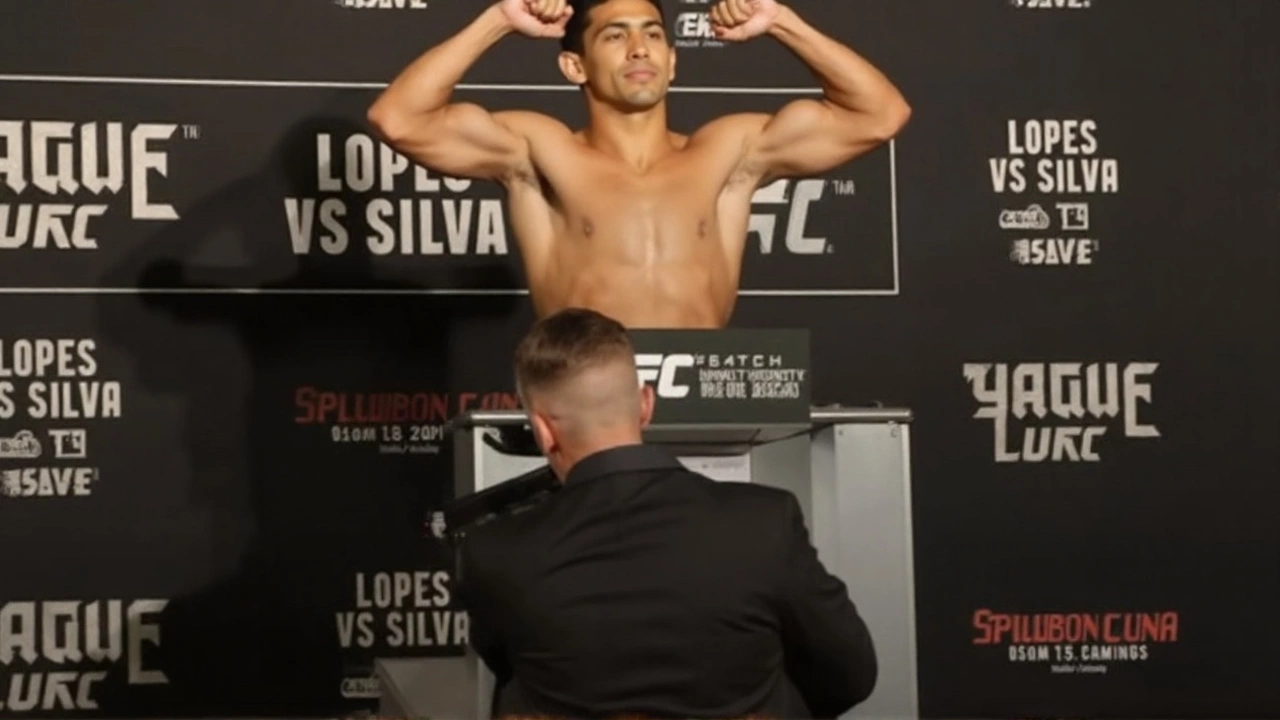The 20-year-old “Border Boy” arrives on Mexico’s biggest UFC night
Twenty years old. Six wins. No losses. A live crowd roaring on Mexican Independence weekend. That’s the stage where Santiago Luna chose to introduce himself to the UFC world. The Mexican bantamweight known as “Border Boy” made his promotional debut at Noche UFC on September 13, 2025, a slot the company reserves each year to celebrate Mexican fighters and fans.
Luna turned professional on April 28, 2023. In a span of a little over two years, he stacked a perfect 6-0 record and drew the attention of UFC matchmakers. For a fighter whose combat age matches his actual age, that’s a fast climb. The debut ended with him on the mic opposite Daniel Cormier inside the octagon — a sign the promotion believed he gave people something worth hearing on a night built for statements.
His signing reflects what the UFC has been building with Noche UFC: a showcase that’s more than a theme night. The Mexican Independence Day card has become a landing spot for rising prospects with a flag on their shoulders and momentum at their backs. Luna fit that mold. He walked into a crowd that doesn’t just watch; it surges. For a young fighter, that energy can either rattle or elevate. On debut night, he looked like he belonged in that noise.
Before the call-up, Luna’s name sat at #525 in Fight Matrix’s featherweight list — an odd note, since he competes at 135 pounds in the UFC. That discrepancy happens when databases track a fighter’s earlier weights or limited sample sizes. Rankings also lag behind reality, especially for prospects who fight on smaller shows and cut to their optimal division later. What matters now is the cage he stands in and the weight class he chose: bantamweight, one of the UFC’s deepest, fastest divisions.
The push from the regional scene to the UFC often takes years, detours, and TV auditions. Luna compressed the timeline. There’s no long backstory of near-misses or late-career transformations here. He got in while still growing as an athlete, which can be a feature, not a bug. Younger fighters tend to adapt quicker to UFC pacing, travel schedules, and the modern blend of wrestling, striking, and clinch work that defines 135.
That “Border Boy” nickname isn’t just branding. It signals identity — a nod to Mexico’s border communities that have always produced fighters with grit and a chip on the shoulder. It plays in arenas, it plays on posters, and it resonates with crowds that see themselves in the walkout. For a new face, that connection matters. It buys patience in tough moments and doubles the cheers when momentum swings.

What his debut means and where this could go next
Noche UFC is more than a calendar date. It’s a pathway. Over the last few years, the company has stacked that card with Mexican and Mexican-American fighters, then let the atmosphere do the rest. If you perform well there, you don’t just win a fight — you win a market. Luna stepping into that slot says the matchmakers see upside, not just a short-notice body.
What’s next? Expect a measured build. The usual pattern for a 20-year-old prospect is two or three fights in the first 12 months, a step up each time, and careful pairing against veterans who ask new questions without grinding you down too early. The goal is to learn under the bright lights without burning out. For bantamweight, that means opponents with tools in specific areas: a pressure boxer with cardio for days, a savvy grappler who hunts back takes, or a kicker who punishes entries. Each assignment reveals something.
The transition also comes with lifestyle tests that never make the highlight reel: maintaining a clean cut to 135, managing travel, handling media, and keeping the training week consistent while your phone won’t stop buzzing. This is where a prospect either becomes a pro or just plays one on fight week. Luna’s first night showed he can carry himself in the moment; sustaining it across a full UFC year is the next step.
There’s also the Mexico factor. The UFC has leaned heavily into the country’s combat culture, and cards timed to Independence Day put a spotlight on homegrown talent. If Luna keeps winning — or even if he competes with urgency and clarity — he could become a regular on those cards, the kind of fighter fans watch from the walkout, not just the handshake at center cage.
For context, bantamweight is unforgiving. It’s packed with fast starters and late-stage veterans who know how to slow a fight without stalling. You can’t be one-dimensional here. Even elite prospects learn quickly that defense at the pocket and grappling awareness off scrambles are non-negotiable. Luna’s clean slate at 6-0 says he’s been doing something right. The UFC run will tell us where the ceiling is and how quickly he can reach it.
That octagon chat with Daniel Cormier matters more than people think. The UFC doesn’t hand out post-fight interviews at random on a featured night. It means production thought the audience wanted to hear from him. It means he left a mark — through pace, poise, personality, or all three. When you’re 20, those minutes on the mic are currency. They build name recognition before the rankings ever do.
We didn’t get a title eliminator or a grudge match here. We got the first brick of a build that could stretch a decade. Luna arrived with a perfect record, youth on his side, and a moment that said, this stage isn’t too big. The debut is done. The work now is everything between fight weeks — the quiet parts fans don’t see but careers depend on.
